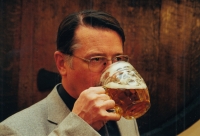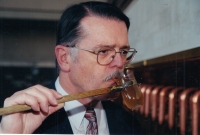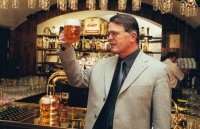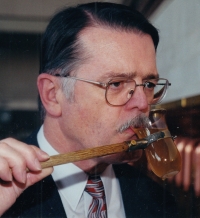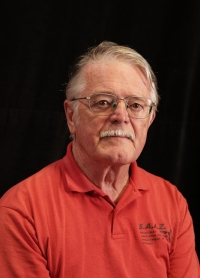I thought for a long time that most would last, but it was the other way around

Download image
Josef Tolar was born on 30 August 1942 in Počátky as the second child of Josef and Alžbeta Tolar. Shortly after his birth, his father was totally deployed to work in Vienna. He returned home shortly before the end of the war. Alžběta Tolarová, née Pincová, whose original occupation was a kindergarten teacher, was a housewife. Until the age of seven he lived with his family in Kamenice nad Lípou. In 1949 her father got a job at the Regional Directorate of Communications and the family moved to České Budějovice. In 1960 he entered the University of Chemical Technology in Prague. During his studies he joined the Communist Party of Czechoslovakia (KSČ). After graduation in 1965, he joined Jihočeské pivovary as head of the company laboratory. He experienced the arrival of Warsaw Pact troops in České Budějovice in 1968. After the August occupation, he created a bulletin board at Jihočeské pivovary to inform about the situation and participated in several meetings. He was expelled from the Communist Party of Czechoslovakia and dismissed from his job during the 1970 vetting process for his attitudes in 1968. He became a rank-and-file technologist with no possibility of advancement. For his stance in 1968, he was expelled from the Communist Party during the 1970 screenings and demoted from his position. He became an ordinary technologist with no chance of advancement. His views and actions from 1968 were repeatedly brought up during screenings until 1989. Every year, he was reminded that he was tolerated in the company by his comrades only out of goodwill. In 1982, he transferred from South Bohemian Breweries to Budějovický Budvar, a national enterprise. From 1985 until his retirement in 2008, he worked at the brewery as a brewer. From the 1990s he was also a member of the narrow management of Budějovický Budvar national enterprise, which was behind the major post-revolutionary transformation of the brewery. At the time of filming (2023) he lived with his wife Jana Tolarová in České Budějovice.
